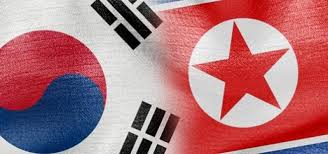Washington’s move to place North Korean leader Kim Jong-Un on its sanctions blacklist for the first time was welcomed by South Korea Thursday, with Seoul saying it would highlight human rights abuses in the hermit state.
 Washington's move to place North Korean leader Kim Jong-Un on its sanctions blacklist for the first time was welcomed by South Korea Thursday, with Seoul saying it would highlight human rights abuses in the hermit state.
Washington's move to place North Korean leader Kim Jong-Un on its sanctions blacklist for the first time was welcomed by South Korea Thursday, with Seoul saying it would highlight human rights abuses in the hermit state.
The US said Kim and 10 other top officials also blacklisted were behind widespread abuses including extrajudicial killings, forced labor and torture in the country's system of prison camps for political detainees that has made North Korea "among the world's most repressive countries".
Seoul backed its ally Thursday, saying it hoped the move would shine a light on human rights "violations" in the North.
"The government... notes with appreciation and welcomes the US announcement... of sanctions against human rights abusers in North Korea", the South Korean foreign ministry said in a statement.
"The measure is expected to raise the international community's awareness of the gravity of the human rights situation in North Korea, where systemic and widespread violations of human rights are being committed, while greatly helping intensify international discussions on the issue and strengthening relevant measures."
Phil Robertson, Deputy Asia Director of US-based Human Rights Watch, said the measure was an "important step forward in achieving justice for the countless victims of human rights abuses in North Korea".
He added the US was "leading the international community to send a clear message to mid-level North Korean officials that obeying orders to violate rights could have very negative consequences for them".
Robertson called for Washington to extend the blacklist and to make clear to Pyongyang "that taking rights abusing decisions will have consequences because the world is closely watching and will judge them accordingly".
South Korean analysts said the North was likely to react angrily at what North Koreans could perceive as a "personal insult" against Kim.
"There will be a bombardment of diatribes from North Korea against the US as the military, government agencies and various social groups are likely to fall over themselves to prove their loyalty to Kim", Professor Yang Moo-Jin of the University of North Korean Studies told AFP.
But the North is likely to wait until the start of a massive annual military exercise the United Sates and South Korea plan in August to flex its military muscle, he said.
Professor Kim Yong-Hyun of Dongguk Univesity said the North would ratchet up tension but it would stop short of conducting another nuclear test to avoid alienating further its main ally China.
Defying international sanctions, North Korea conducted its fourth nuclear test in January and a missile test, disguised as a satellite launch, in the following month.